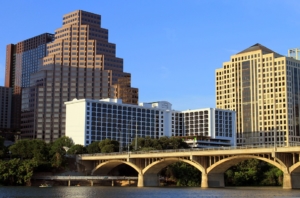Austin Corridor Program Office provides project updates for Corridor Construction Program
The city of Austin Corridor Program Office (CPO) provided an update and memo to Austin City Council October 4 on the Fiscal Year (FY) 2022 status of the 2016 Bond-funded Corridor Construction Program (CCP) designed to enhance safety, connectivity and mobility on nine key Austin corridors.
Key updates in the memo include:
- Thirteen large corridor projects totaling over $120 million will be in procurement or construction by the end of calendar year (CY) 2022.
- Approximately $200 million in construction projects will be completed or in progress by the first quarter of CY 2023.
- The program projects 75 miles of shared use paths or sidewalks and 100 bike route connections across all corridors.
- The project remains on schedule to have all projects completed or under construction by the end of CY 2024 as per the goal outlined in the 2016 Mobility Bond Contract With Voters.
- Large construction projects are in progress on Slaughter Lane, Airport Boulevard, and Burnet Road.
The memo also announced that CPO has leveraged 2016 Bond funding to obtain grant funding and additional opportunities and add an additional $70 million in project funding for a total of $550 million. CPO recently completed three new preliminary engineering studies on South Pleasant Valley Road, Menchaca Road, and West Martin Luther King Jr. Boulevard for future corridor improvements.
City of Austin to request federal funding for study of I-35.
In the spring of 2022, the U.S. Department of Transportation (USDOT) launched its $1 billion Reconnecting Communities pilot program, and the city of Austin plans to request funding for Interstate 35. The city will submit the study “Our Future 35: Connecting Equitably” to USDOT.
The proposed planning study has an estimated cost of $1.4 million. The award of any grant funds will require the city to match funding by entering into an Agreement for Award with the USDOT. Final grant applications are due on October 13, 2022.
The USDOT’s $1 billion pilot will provide $250 million in planning costs and $750 million in capital projects for communities to restore connectivity through removal, retrofit, mitigation, or replacement of eligible transportation infrastructure.
The Our Future 35: Connecting Equitably Study will identify discrete, strategic actions and recommendations for improvements including, but not limited to, the following:
Identify how new caps and stitches will tie into surrounding multimodal transportation networks (including vehicular, transit, bike, pedestrian, and recreational networks) to provide equitable mobility options.
Work alongside our recently initiated Developing Equitably Study to identify supportive mobility improvements to affordable housing, local businesses, other community benefits and anti-displacement efforts.
Extend our understanding of transit needs and priorities for serving the new destinations created with caps and stitch amenities.
Evaluate the environmental justice and health impacts of proposed transportation investments on residents, including improved air quality, increased shade, easy access to transportation options, and connectivity to healthy food options.

 512-531-3900
512-531-3900 Request More Info
Request More Info
